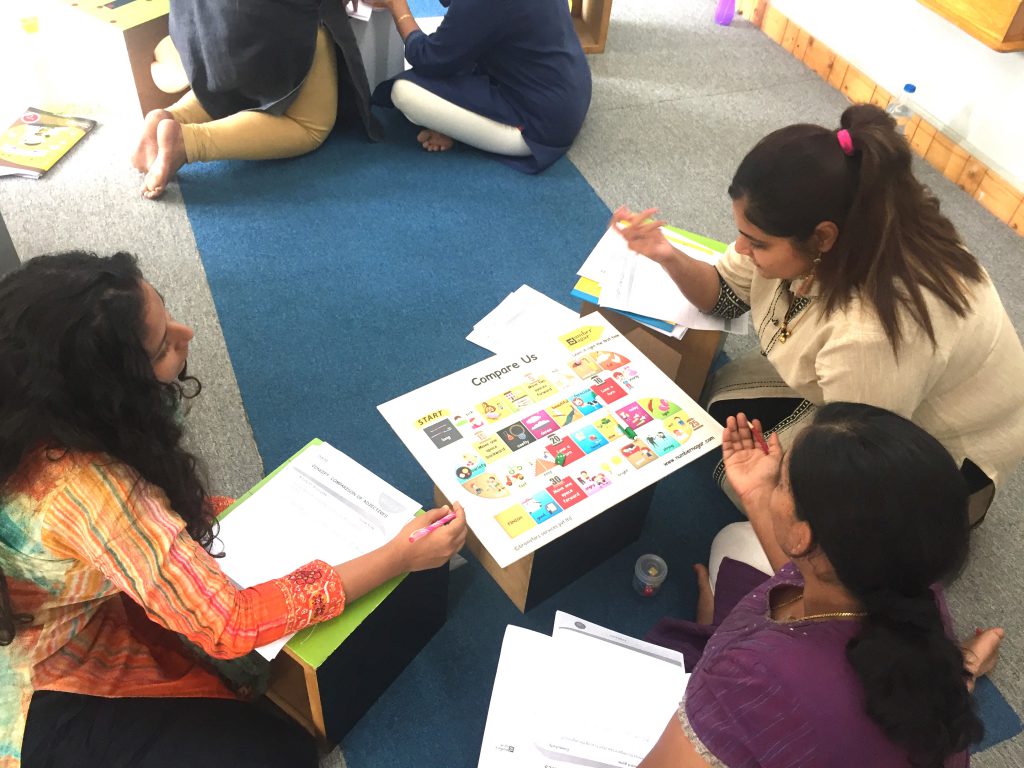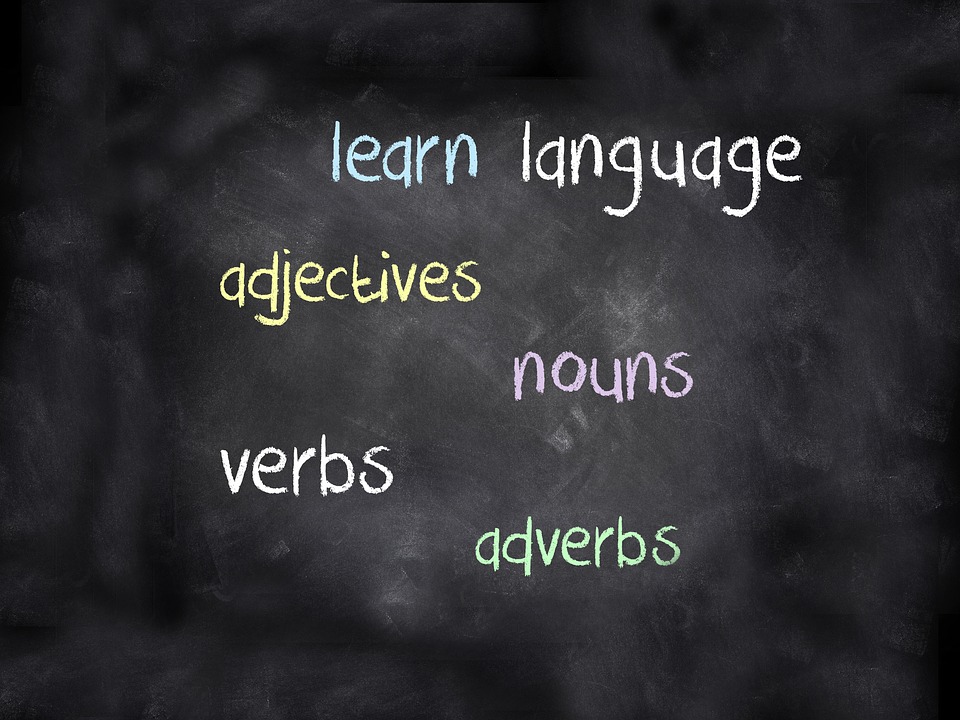Introduction
In this part 2 of the language series, we are diving into different parts of speech. We will look at how mastering the parts of speech through an intuitive learning approach can make a big difference in the written and spoken English.
Words make our lives – we read, we write, we speak; to express ourselves we use words in different forms. And do you know each word is a part of speech?
In the English language, we have eight parts of speech. We get introduced to them during our elementary school education. Just like life is impossible without air, and a 20-storied building stands because of its strong foundation; English is meaningless without the eight parts of speech. You cannot build a stable career without a thorough knowledge of these parts of speech.
If I am able to write and express myself to you, it’s because of the foundation that has been developed in my childhood by my teachers and parents. Today, for a while, let’s dive into the world of “parts of speech’ and let’s have some fun while learning them.

The 8-parts of speech – an intuitive learning approach
“I am writing.”
“My write-ups are mostly for youngsters.”
“The baby cries all night.”
“We heard the cries in the middle of the night.”
Can you visualise the mood of the person or the setting he/she is from these sentences? Parts of speech are powerful to conveying the information in a precise way.
There are 8 of them and you might already be familiar to most of them. They are – noun, verb, pronoun, adjective, adverb, preposition, conjunction, and interjection.
Let’s dive right into them.
Noun
A noun is a word that we use to name any person, animal, place, thing, or an abstract idea.
If you want to be empowered learners, start learning from your surroundings. When you read a sentence, ask yourself “Who.” After reading my first and third example, if you ask, “Who,” you will easily find the noun as I and Baby. But, in the second and fourth sentence, “Who” will not give any answer. So, then ask, “What” and the noun will be in front of you – write-ups and cries.
- Nouns can name feelings or ideas.
- Can be singular or plural.
- It is the only part of speech that takes apostrophes.
Fascinating. Isn’t it?
Verb
To have enriched learning experiences, it is vital that we enjoy our studies.
Every sentence has action. Be it the first few examples, or the last sentence that I wrote. The action – writing, cries, heard, enjoy. Wait! Where’s the verb in the second example? “My write-ups are mostly for youngsters.”
A verb not only denotes an action, but it also indicates a state of being. So, in the second example are is the linking verb. Similarly, am from the first example is helping verb.
Verb depends on the noun. E.g., You market yourself; he markets himself.
It denotes the time of action and can be present, past, or future tense. I share study tips; I have shared; I will share.
I firmly believe, a teacher should always try to make his classes meaningful and relevant and should encourage students to have dialogues and learn from them. This type of personalized Learning helps kids to remember through practical exposure.
So, coming back to the parts of speech.
Pronoun
A pronoun replaces a noun in a sentence.
We, me, he, she, they, mine, his, etc. are all pronouns.
However, you can add a pronoun in a sentence only if you have already introduced the noun earlier, or else it will be incomplete. Like if you say – We went to play in the ground. Who is this ‘we’? Instead, if you write. After Smita and Arun came to my house, we went to play on the ground.
While I answer the “who” with the noun – Smita, Arun, I later refer the noun and break the monotony of the sentence with “we”.
Adjective
Word or words that we use to describe a noun or pronoun is known as an adjective. It mostly precedes the noun or pronoun it describes.
We can also use it to describe the degree of comparison of something, e.g. good, better or best – good online learning; better online learning; best online learning.
Adjectives can be positive (e.g., large, old, slow); comparative (larger, older, faster) and superlative (largest, oldest, fastest).
Adverb
An adverb can add meaning to a verb, an adjective, another adverb, a phrase, or a clause. Like an adjective, it is also used for describing, but you can place it anywhere in the sentence.
Unfortunately, the school will be closed tomorrow. Here the sentence modifier or the word which adds meaning to the sentence is ‘unfortunately.’
A word like finally, next, nevertheless, still, otherwise, however, incidentally, etc. are conjunctive adverbs. And you cannot use them to join two independent clauses without the support of a semicolon.
Mostly, adjectives end with –ly, but it also answers questions like “how,” “when,” “where,” and “how much.”
Preposition
A preposition links the different parts of speech – the nouns, pronouns, and phrases to the other words in a sentence. It introduces a word or phrase, and it explains the relation of the object to the rest of the sentence.
- I am sitting on the chair
- I am sitting at the table
- I am sitting near the tree
- I am sitting with my friends
- I am sitting in my class
- I am sitting beside my bestie
I am speaking more about the place where I am sitting with the help of the preposition.
Try not to use prepositions at the end of the sentence and do not use them until required.
Conjunction
Conjunctions are the words that you use to join two different clauses. It links a dependent clause to an independent clause.
- It explains the reason (for, because)
- Adds one thing to the other (and)
- Used to represent an alternative idea to an already stated idea (or, nor)
- To compare or show contrast (but, however, yet)
- To explain any consequence or result (so)
We encourage critical thinking, so we use different learning activities and follow individual learning methods of teaching.
Interjection
We add an interjection to a sentence to express our emotion. But, they are not directly related to any other words in the sentence.
We customarily use an exclamation mark after an interjection.
Oops! Have I shared too much information?
Alas! There’s still a lot to know.
So, the above sentences will be grammatically correct even if I remove the interjection. Try it yourself.
Don’t they still hold meaning? Yes, they do, but aren’t they more impactful with the interjection?
What’s the takeaway from this discussion?
Let me reiterate myself – Do not try to memorize parts of speech. Depending on your pace of learning, take it slow and let the usage of each sync in properly. These 8 parts of speech explained above are crucial in every sentence that you write. You will need each till the last sentence you speak in your life.
NumberNagar®’s intuitive learning approach

My schooling has been from Christian Missionary Schools where the English language was one of the essential subjects. Our teachers ensured that we were thoroughly familiar with all the chapters of Wren and Martin, but what fun it would have been if I could have got introduced to the experiential Learning process of NumberNagar® then! While I am manage-ably good in this language I could have loved this language more if the teachers would have focused more on practical lessons than on theoretical tests.
Let your child enjoy his childhood and nurture a love for the language through fun games. Trust us, and you will realize ‘after all- it’s not as tough as you think it to be.’ Our ever-evolving learning environment will help your child to be more successful in their career and life.
Keywords: intuitive learning, experiential learning, personalised learning, parts of speech, phonetics


I like the approach to explain…its simple and clears concepts very well .
Thank you, Shweta! We are glad you liked the way we presented the part of speech.